The 2024 Plenary sessions will feature in-depth presentations that focus on this year’s theme: Amplifying and Empowering Voices in Evaluation.
Wednesday, October 23
Learning from the Life and Legacy of Ricardo Millett: Mentor, Scholar, Field Builder
2:30 - 4:00 p.m.
Sponsored by Abt Global
This year’s AEA’s annual meeting theme, Amplifying and Empowering Voices in Evaluation, is focused on bringing together evaluators, new and experienced, to develop a closer bond with one another for the good of the field. This theme provides the ideal context to honor Dr. Ricardo Millett, who sadly passed away late last year. Dr. Millett focused his professional life on creating community in our field, and in so doing, shaped the careers of evaluators and practitioners of color who were often unseen or had not yet found their place in AEA or the broader field of evaluation. His life and work exemplify the goal of bringing newer and more experienced evaluators together, and we are humbled by the opportunity to share his legacy with a broad audience.
This panel seeks to honor Dr. Millett by presenting stories about how his mentorship, support, and leadership impacted evaluators of color in the non-profit, philanthropic, and private sectors as well as the American Evaluation Association. We hope the audience leaves the session with actionable steps and meaningful insights that inspire reflection on their current practices and ways to enhance them.
Panelists
About Andrea Anderson
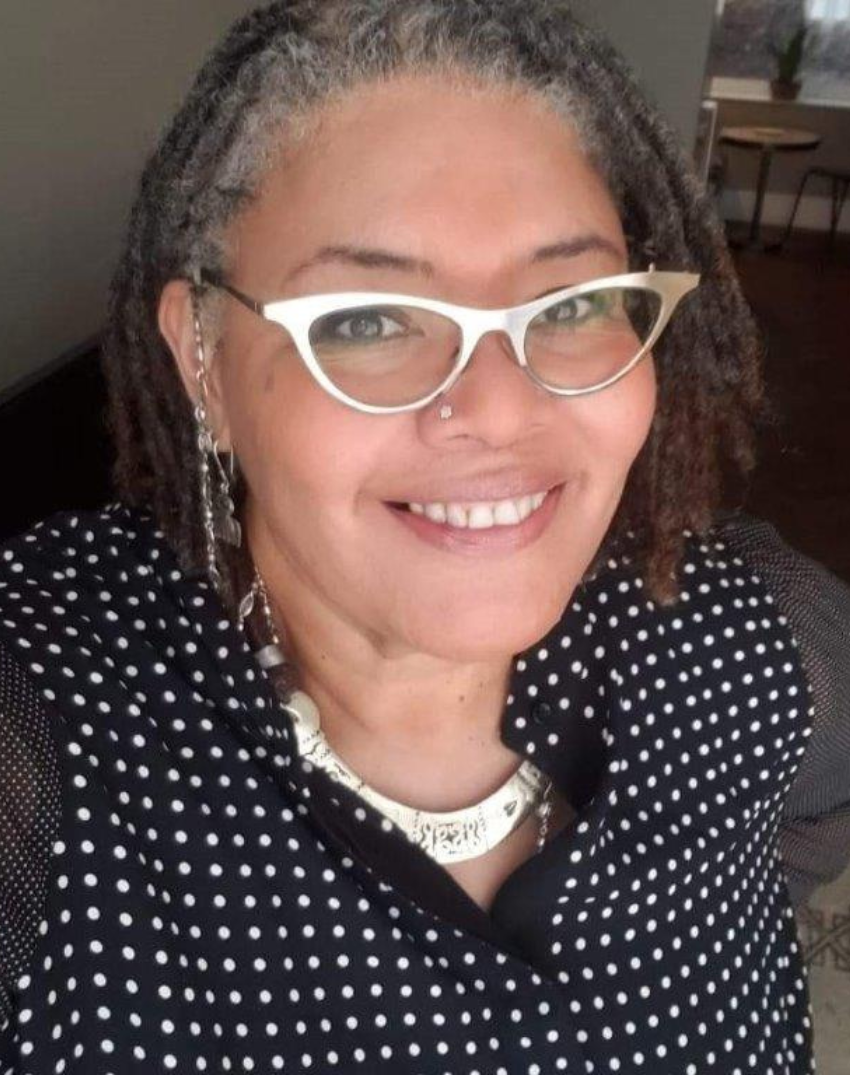 Andrea Anderson, PhD is a Principal Associate at Abt Associates with over 25 years of evaluation experience in the place-based community development field. Dr. Anderson has conducted qualitative research, theory of change development, and multi-stakeholder sense-making sessions in urban and rural communities of color as well as Tribal communities throughout the United States. At Abt she leads and supports projects that are aligned with the principles of Culturally Responsive and Equitable Evaluation. In this capacity she works to incorporate the perspectives of diverse program stakeholders in evaluation design, builds the capacity of community-based evaluation partners, facilitates collaborative data analysis processes, and develops deliverables that meet the needs of non-technical project stakeholders. Prior to Abt, Andrea served as the Director of Strategic Evaluation, Learning and Impact at the Skillman Foundation in Detroit, MI; she led North Star Planning and Evaluation Consultants; and she was a Research Associate at the Aspen Institute Roundtable on Comprehensive Community Initiatives for Children and Families.
Andrea Anderson, PhD is a Principal Associate at Abt Associates with over 25 years of evaluation experience in the place-based community development field. Dr. Anderson has conducted qualitative research, theory of change development, and multi-stakeholder sense-making sessions in urban and rural communities of color as well as Tribal communities throughout the United States. At Abt she leads and supports projects that are aligned with the principles of Culturally Responsive and Equitable Evaluation. In this capacity she works to incorporate the perspectives of diverse program stakeholders in evaluation design, builds the capacity of community-based evaluation partners, facilitates collaborative data analysis processes, and develops deliverables that meet the needs of non-technical project stakeholders. Prior to Abt, Andrea served as the Director of Strategic Evaluation, Learning and Impact at the Skillman Foundation in Detroit, MI; she led North Star Planning and Evaluation Consultants; and she was a Research Associate at the Aspen Institute Roundtable on Comprehensive Community Initiatives for Children and Families.
About Lisa Aponte-Soto
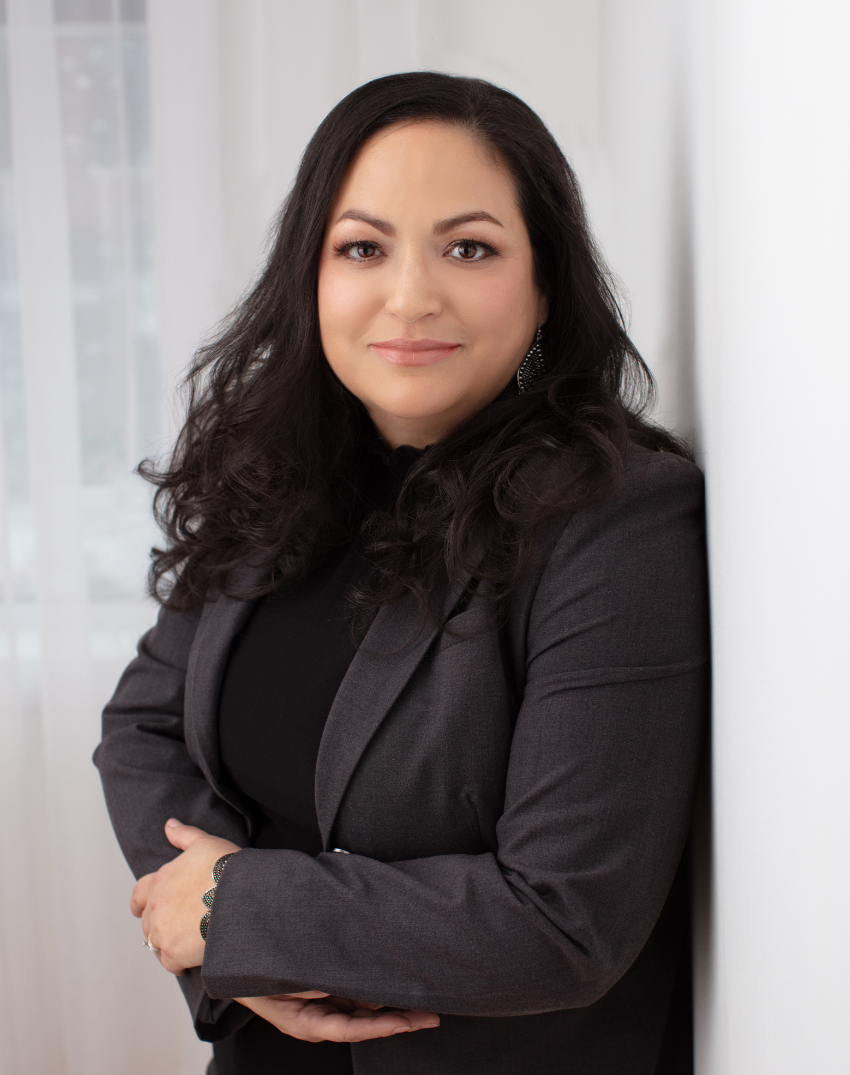
Lisa Aponte-Soto, PhD, MHA is the founding President/CEO of Tanoma Consulting LLC. She specializes in asset-based community-driven models using mixed methods research and evaluation approaches. She also facilitates capacity building workshops on culturally responsive practices, leadership, strategic visioning, and quality assurance.
Dr. Aponte-Soto previously served as Associate Director of Community Engaged Research at the University of Illinois at Chicago, National Program Deputy Director of the Robert Wood Johnson Foundation New Connections, Director of Evaluation at Equal Measure, and Director of TRIO Programs at Richard J. Daley College. She is an affiliate researcher of the Culturally Responsive Evaluation and Assessment (CREA) Center and a member of the Expanding the Bench Advancing Culturally Responsive and Equitable (ACE) Evaluation Network.
About Katrina Bledsoe
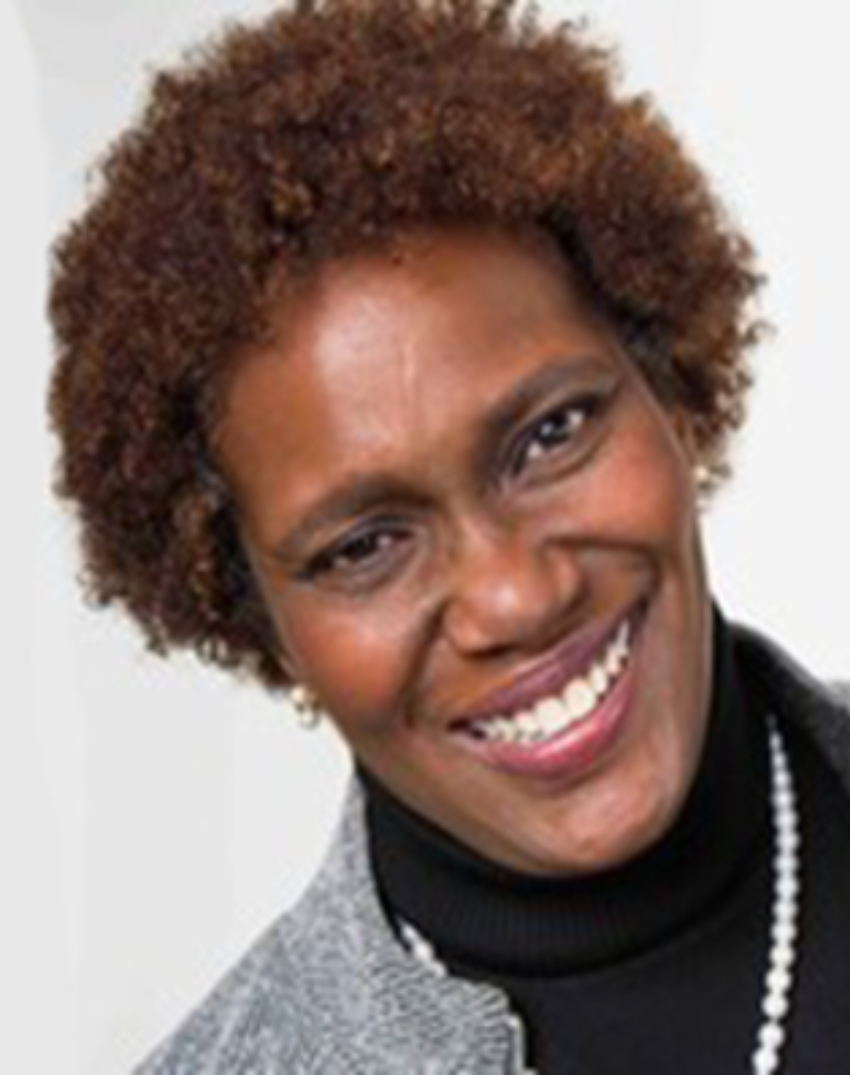 Katrina L. Bledsoe, PhD, Principal of Global Equity, Diversity, and Inclusion, is a trained evaluator, mixed methodologist, and social psychologist with evaluation experience in both U.S. and international settings. Dr. Bledsoe’s evaluation work has focused on community-based social services, health and education evaluation and programming, mixed methodology and methods, theory-driven evaluation, culturally responsive and equity-focused approaches, and topics in applied social psychology. At Abt Global, she is responsible for developing strategies that center on culturally responsive and equity-centered research and evaluation approaches, theory-driven evaluation, and organizational learning.
Katrina L. Bledsoe, PhD, Principal of Global Equity, Diversity, and Inclusion, is a trained evaluator, mixed methodologist, and social psychologist with evaluation experience in both U.S. and international settings. Dr. Bledsoe’s evaluation work has focused on community-based social services, health and education evaluation and programming, mixed methodology and methods, theory-driven evaluation, culturally responsive and equity-focused approaches, and topics in applied social psychology. At Abt Global, she is responsible for developing strategies that center on culturally responsive and equity-centered research and evaluation approaches, theory-driven evaluation, and organizational learning.
About David Chavis
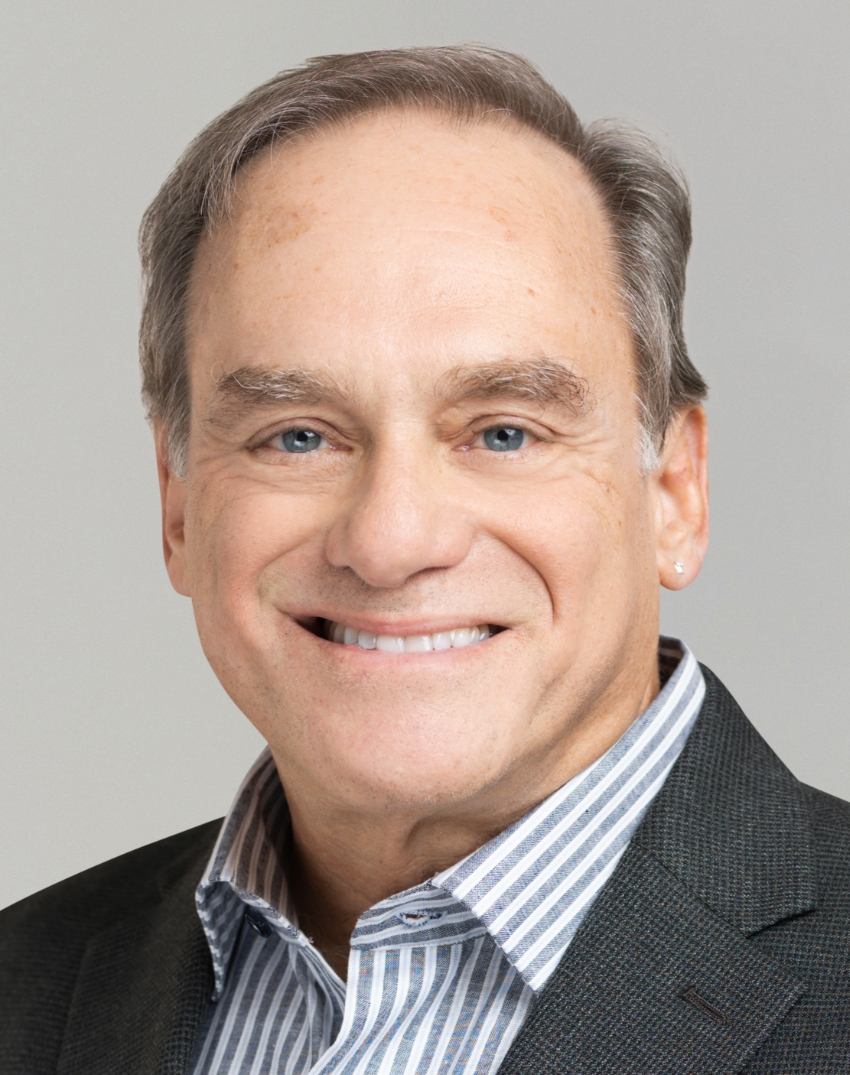 David Chavis, PhD Senior Fellow at Community Science, is internationally recognized for his work in the implementation, support, and evaluation of community and systems change initiatives. The focus of his work is equitable community development as a central strategy to promote community resilience, economic and educational opportunities, improved health and well-being, and a more powerful citizenry. He also specializes in the design and implementation of community capacity building systems to bring about sustainable and scaled systems changes. David has directed the evaluation of comprehensive community initiatives at the national and local levels on community organizing, advocacy, collaborative approaches, equitable economic development and affordable housing, crime and violence reduction, neighborhood quality of life, and strengthening community resilience, with an emphasis on integrating science- and practice-based knowledge. He has been an officer and board member of AEA.
David Chavis, PhD Senior Fellow at Community Science, is internationally recognized for his work in the implementation, support, and evaluation of community and systems change initiatives. The focus of his work is equitable community development as a central strategy to promote community resilience, economic and educational opportunities, improved health and well-being, and a more powerful citizenry. He also specializes in the design and implementation of community capacity building systems to bring about sustainable and scaled systems changes. David has directed the evaluation of comprehensive community initiatives at the national and local levels on community organizing, advocacy, collaborative approaches, equitable economic development and affordable housing, crime and violence reduction, neighborhood quality of life, and strengthening community resilience, with an emphasis on integrating science- and practice-based knowledge. He has been an officer and board member of AEA.
About Rodney Hopson
 Rodney Hopson, PhD is a distinguished scholar and Senior Associate Dean (Research) and Professor at the School of Education at American University. Previously a professor at the University of Illinois-Urbana Champaign, he has held multiple leadership roles, including advancing the Evaluation unit and supporting PhD students through externally funded partnerships. With a doctorate from the University of Virginia and a postdoctoral fellowship at Johns Hopkins University, Hopson’s research focuses on the educational and social challenges faced by marginalized groups globally. A former AEA President and recipient of Guttentag, Ingle, and Lazarsfeld awards, Hopson has co-authored and edited 10 books, received funding from major foundations, and is the founding Program Director of the American Evaluation Association’s Graduate Education Diversity Internship (GEDI) Program, which promotes culturally responsive evaluation thinking and practices for those underrepresented in the field.
Rodney Hopson, PhD is a distinguished scholar and Senior Associate Dean (Research) and Professor at the School of Education at American University. Previously a professor at the University of Illinois-Urbana Champaign, he has held multiple leadership roles, including advancing the Evaluation unit and supporting PhD students through externally funded partnerships. With a doctorate from the University of Virginia and a postdoctoral fellowship at Johns Hopkins University, Hopson’s research focuses on the educational and social challenges faced by marginalized groups globally. A former AEA President and recipient of Guttentag, Ingle, and Lazarsfeld awards, Hopson has co-authored and edited 10 books, received funding from major foundations, and is the founding Program Director of the American Evaluation Association’s Graduate Education Diversity Internship (GEDI) Program, which promotes culturally responsive evaluation thinking and practices for those underrepresented in the field.
About Maria Montenegro
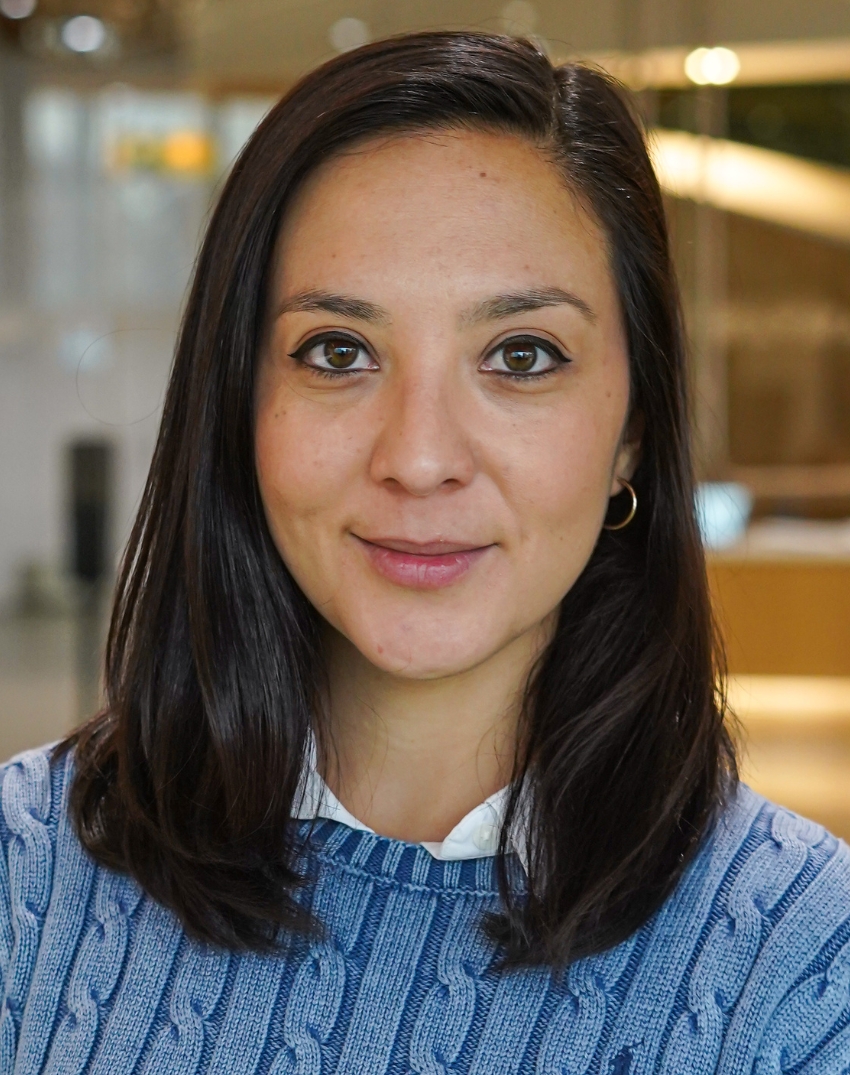
Maria Montenegro is a Latin-American evaluator dedicated to helping organizations use evidence to improve their programs. She leads a research and evaluation team in the Virtual Health Department of one of Canada’s largest health authorities and also works as an independent evaluation consultant.
Maria co-founded and chaired EvalYouth North America, a group that supports young and emerging evaluators and promotes meaningful engagement of youth in evaluation. She is the current AEA representative to EvalYouth. Maria also hosts The Evaluation Couch, a podcast about career development in evaluation. Maria holds a Master’s degree in Agricultural and Resource Economics from the University of Alberta and is a Credentialed Evaluator with the Canadian Evaluation Society.
Thursday, October 24
Generative AI: Navigating the Ethical Frontier in Evaluation
8:30 - 10:00 a.m.
This session will explore the transformative impact of Generative AI on evaluation practices, examining both the opportunities and challenges it presents. Panelists will discuss the ethical implications of AI integration, sharing personal insights on the balance between its benefits and risks. Attendees will gain a deeper understanding of how AI can be both a powerful tool and a challenge in evaluation, and what it means to integrate this technology responsibly in their work.
Moderator: Meredith Pearlman
About Meredith Pearlman

Meredith Blair Pearlman is a seasoned leader with over 20 years of experience in the public, nonprofit, and philanthropic sectors. She is dedicated to advancing equity and justice by using data to drive organizational effectiveness. Most recently, Meredith served as the Director of Evaluation and Learning at the Packard Foundation, where she led initiatives that strengthened learning and impact across the organization.
Meredith holds a master’s degree in Public Administration from the University of Washington’s Daniel J. Evans School of Public Policy & Governance and began her career in international development as a Peace Corps volunteer in Ghana. With deep expertise in evaluation and learning, Meredith is passionate about creating environments where data informs strategy and empowers organizations to achieve their goals.
Panelists
About Olivia Deich
 Olivia Deich is Director of Impact & Learning at Climate Breakthrough and founder and co-chair of Climate Strategy, Monitoring, Impact, Learning, and Evaluation (SMILE), a global community of practice for SMILE practitioners in climate philanthropy. Olivia has over a decade of experience supporting foundations and nonprofits, including tenure at the Packard Foundation. She has a particular interest in research ethics, stemming from an early role supporting President Obama's Bioethics Commission. Olivia holds an undergraduate degree from the University of Virginia and a Master's in Public Health from Columbia University.
Olivia Deich is Director of Impact & Learning at Climate Breakthrough and founder and co-chair of Climate Strategy, Monitoring, Impact, Learning, and Evaluation (SMILE), a global community of practice for SMILE practitioners in climate philanthropy. Olivia has over a decade of experience supporting foundations and nonprofits, including tenure at the Packard Foundation. She has a particular interest in research ethics, stemming from an early role supporting President Obama's Bioethics Commission. Olivia holds an undergraduate degree from the University of Virginia and a Master's in Public Health from Columbia University.
About Linda Raftree
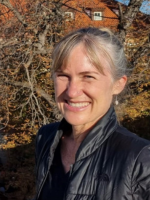 Linda focuses on the ethical use of technology and data in international development, human rights, and humanitarian contexts. She is the founder of the MERL Tech Initiative (MTI) which has been exploring the responsible use of digital tools and data since 2014. Through MTI, Linda has played a strong role in bringing together critical thinkers from the monitoring, evaluation, research, and learning (MERL), data science, and digital technology sectors to collaborate, develop capacities and strengthen good practice.Linda convenes the MERL Tech Natural Language Processing Community of Practice (NLP-CoP) and the New York City Technology Salon. She has advised a range of foundations, bilateral agencies, and non-governmental organizations on responsible data policy and practice, applied research, digital safeguarding, inclusive digital approaches, and safe programming. Linda is a Certified Information Privacy Professional (CIPP & CIPM).
Linda focuses on the ethical use of technology and data in international development, human rights, and humanitarian contexts. She is the founder of the MERL Tech Initiative (MTI) which has been exploring the responsible use of digital tools and data since 2014. Through MTI, Linda has played a strong role in bringing together critical thinkers from the monitoring, evaluation, research, and learning (MERL), data science, and digital technology sectors to collaborate, develop capacities and strengthen good practice.Linda convenes the MERL Tech Natural Language Processing Community of Practice (NLP-CoP) and the New York City Technology Salon. She has advised a range of foundations, bilateral agencies, and non-governmental organizations on responsible data policy and practice, applied research, digital safeguarding, inclusive digital approaches, and safe programming. Linda is a Certified Information Privacy Professional (CIPP & CIPM).
About Aileen Reid
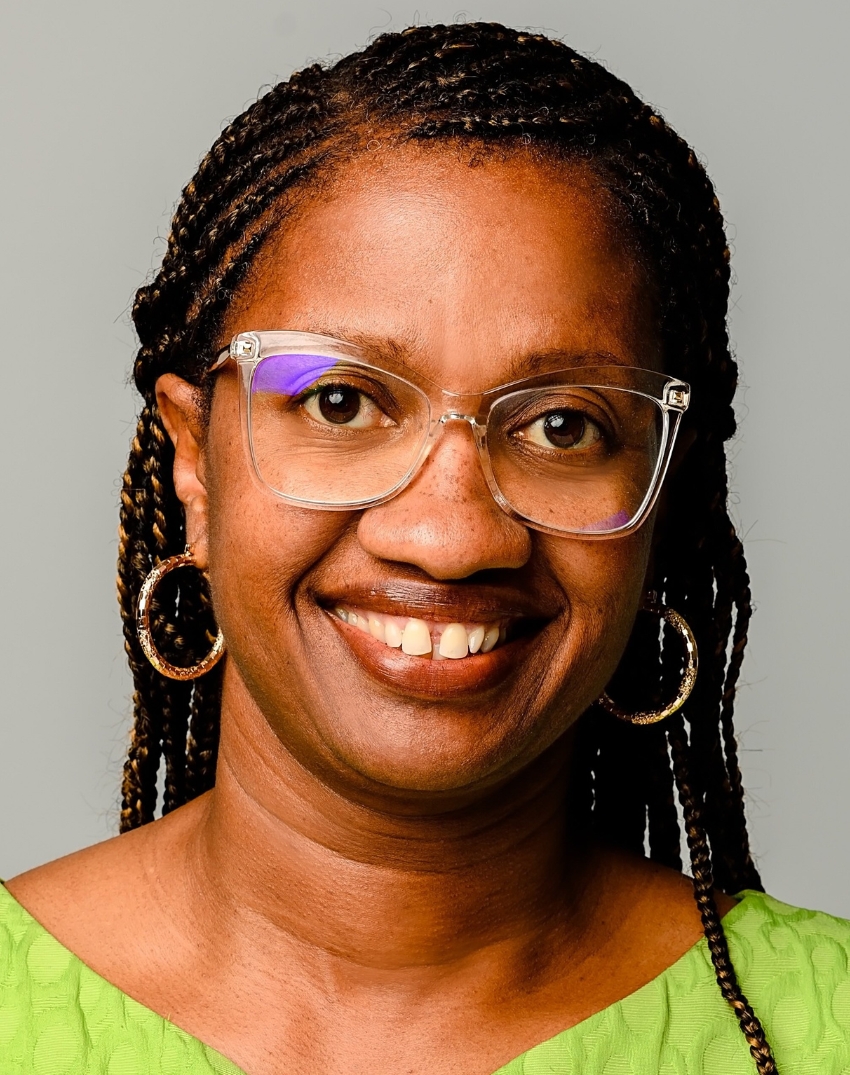 Dr. Aileen M. Reid is an Assistant Professor of Educational Research Methodology and a Senior Fellow in the Office of Assessment, Evaluation, and Research Services (OAERS) at UNC Greensboro. Dr. Reid co-directs the STEM Program Evaluation Lab (SPEL), which provides training in research and evaluation for graduate and undergraduate students on STEM education projects funded by the National Science Foundation (NSF) and the National Institutes of Health. Her research applies culturally responsive frameworks to program evaluation and educational measurement to investigate inequities in outcomes among underrepresented and minoritized groups. She also investigates values-engaged teaching, learning, and mentorship in research and evaluation. Dr. Reid presents and publishes her work in program evaluation, education, and the STEM disciplines.
Dr. Aileen M. Reid is an Assistant Professor of Educational Research Methodology and a Senior Fellow in the Office of Assessment, Evaluation, and Research Services (OAERS) at UNC Greensboro. Dr. Reid co-directs the STEM Program Evaluation Lab (SPEL), which provides training in research and evaluation for graduate and undergraduate students on STEM education projects funded by the National Science Foundation (NSF) and the National Institutes of Health. Her research applies culturally responsive frameworks to program evaluation and educational measurement to investigate inequities in outcomes among underrepresented and minoritized groups. She also investigates values-engaged teaching, learning, and mentorship in research and evaluation. Dr. Reid presents and publishes her work in program evaluation, education, and the STEM disciplines.
About Zach Tilton
 Zach Tilton is an evaluation specialist with The MERL Tech Initiative, where he supports practitioners and organizations in responsibly integrating artificial intelligence in their evaluation work and function. He is the Co-chair of the Sandbox working group in the Natural Language Processing Community of Practice. He is an outgoing member of the EvalYouth Management Group, where he has supported young and emerging evaluators worldwide. Zach’s field experience spans North and West Africa, South East Asia, and the Pacific, with over two years of development experience in rural communities. He is finishing a PhD in evaluation, and his research is focused on using AI for meta-evaluation.
Zach Tilton is an evaluation specialist with The MERL Tech Initiative, where he supports practitioners and organizations in responsibly integrating artificial intelligence in their evaluation work and function. He is the Co-chair of the Sandbox working group in the Natural Language Processing Community of Practice. He is an outgoing member of the EvalYouth Management Group, where he has supported young and emerging evaluators worldwide. Zach’s field experience spans North and West Africa, South East Asia, and the Pacific, with over two years of development experience in rural communities. He is finishing a PhD in evaluation, and his research is focused on using AI for meta-evaluation.
Friday, October 25
Participatory MEL and MEL Tech – Friends or Frenemies
8:30 - 10:00 a.m.
Sponsored by Mercy Corps
The theme of AEA’s 2024 event is “Amplifying and Empowering Voices in Evaluation,” challenging participants to think about how we are uplifting the voices of today’s youth, the historically underrepresented, the typically unheard in our evaluations.
One important way of elevating these voices has been participatory monitoring, evaluation, and accountability methods, emphasizing the active involvement of program participants in the design, implementation and evaluation of program MEL and accountability processes. Methods such as outcome harvesting, for example, allow evaluators to identify or verify outcomes based on the views of participants. Collaborating, Learning and Adapting (CLA) promotes pausing and reflecting with program teams, participants, and partners to evaluate activities critically.
MEL technologies have gained tremendous traction in recent years. Some of these – for example, technologies to analyze qualitative data – may enable or expedite participatory methods. Others – for example, the use of remote sensing in evaluations – may inadvertently reduce the use of participatory methods.
Through a panel conversation with representatives from non-governmental organizations (NGOs) active in the international humanitarian and development sector, this keynote will explore how the rise of M&E technologies has helped or hindered the use of participatory MEL and discuss lessons learned.
About Josh DeWald
 Josh DeWald leads Mercy Corps’ Evidence & Learning Unit, which coordinates the organization’s strategic “evidence driven commitment,” focused on using data, evidence, and analytics to improve programs, scale what works, and influence others. In this role he coordinates teams focused on monitoring, evaluation, and learning; research and learning; crisis and context analysis; strategy results measurement; and evidence use.
Josh DeWald leads Mercy Corps’ Evidence & Learning Unit, which coordinates the organization’s strategic “evidence driven commitment,” focused on using data, evidence, and analytics to improve programs, scale what works, and influence others. In this role he coordinates teams focused on monitoring, evaluation, and learning; research and learning; crisis and context analysis; strategy results measurement; and evidence use.
Prior to this role, Josh was Mercy Corps’ Vice President for Program Performance and Quality. He has also held Regional Director, Country Director, Program Director, Program Manager, Technical Advisor, Program Officer, and emergency operations roles with Mercy Corps in South Asia, Central Asia, Southeast Asia, the Balkans, and East Africa.
In addition to Mercy Corps, Josh has worked as a Division Director for an international agricultural research center, IFDC, coordinating activities in South and Southeast Asia; and, in Senior Director roles with Save the Children, focused on the design and implementation of large-scale food security and livelihoods programs, primarily in West and Southern Africa. He began working in the sector as a Peace Corps volunteer and consultant in Central Asia. Josh holds a master’s degree in Agricultural and Applied Economics from Clemson University, and is based in the Washington, DC area.
About Hanna Camp

Hanna Camp is the Director of MEL Technologies with Mercy Corps’ Monitoring, Evaluation, and Learning Team in the Evidence & Learning Unit. She leads global strategy development, training, and technical support for MEL Tech, and works with Mercy Corps programs across the globe to implement more efficient and effective processes for collecting, processing, and using MEL data. She also leads or collaborates on grant-funded projects developing resources for specific thematic areas such as reduced access MEL, context analysis, and use of remote sensing data for MEL.
Before joining Mercy Corps, Hanna worked as a data analyst and project manager for international development-focused organizations working in agricultural climatology analytics and in long-term scenario planning.
About Prabin Nanicha Shrestha

Prabin Nanicha Shrestha is the Regional Monitoring, Evaluation and Learning (MEL) Specialist with the Evaluation and Learning Unit (ELU) at The Asia Foundation. He is based in Kathmandu, Nepal. He supports over 20 country offices across Asia and the Pacific on the design of MEL systems and facilitates workshops on technology for MEL and Gender-responsive MEL. Prior to this role, Prabin was Equal Access International’s Monitoring, Evaluation and Learning (MEL) Lead in Nepal office.
Prabin brings insights into best practices, challenges and lessons learnt from the use of technology for participatory MEL based on his experience of working with communities and stakeholders on diverse issues such as gender-based violence, women empowerment, strengthening governance and countering violent extremism. Prabin has a Master's degree in Conflict, Peace and Development Studies and a Bachelor's degree in Social Work. He is also a co-leader of EvalYouth Asia -a regional chapter of EvalYouth Global Network. He collaborates with young and emerging evaluators in promoting localized and indigenous MEL methods.
About Eddah Kanini
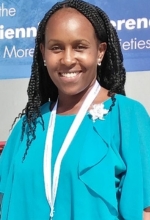
Eddah has a multifaceted competence in Organizational Development, Monitoring, Evaluation and gender specialization and training. Her dedication to working with local and international organisations and national and Sub-national government to promote the production, transfer and use of evidence and sound technologies, in achieving sustainable development goals, has been exercised for the last thirteen years. Eddah is one of the founding members of Consultancy for Organizational development and Research (CODR) LTD as well as a Think Tank Data and Learning for Development in Africa (DALDA). As a leader, She is the current treasurer of AGDEN, Secretary General of MEPAK, Eastern Africa representative in the Board of AfrEA, and Sub-Saharan Africa representative in IDEAS. With her investigative mind, Eddah loves conducting research and evaluations and advising in the fields of health systems, WASH, climate change, Gender, Indigenous knowledge, Diversity Equity and Inclusivity (DEI) and sustainable development.
Eddah believes in passing her knowledge to others and has therefore been a mentor to many. She participated in mentoring the Young and Emerging Evaluators in 2019 under the EvalPartners program, mentored in MDE Partnering to Educate and Coach Evaluators (The PEACE) Project currently the Connexus and mentored youth entrepreneurs to successfully pitch in the Global Entrepreneurship Summit graced by the President of the United States (POTUS) H.E Barrack Obama. She also held a group mentorship program for women in Evaluation on jumping the Evaluation hurdles.
About Clara Hagens

Clara Hagens is a Senior Technical Advisor for Monitoring, Evaluation, Accountability and Learning (MEAL) within the Program Quality and Impact team at Catholic Relief Services (CRS). Clara has worked with CRS for over 15 years and supported the development and institutionalization of agency MEAL policies and MEAL resources focused on design and development of MEAL systems, feedback mechanisms, learning approaches, and participatory evaluations. Clara also champions the use of MEAL DPro to build MEAL capacity among program, sectoral and MEAL teams alike and serves on the Board of Directors for PM4NGOs.
Clara holds a Master’s Degree in Public Health (MPH 2002) from Emory University and lives in Medellín, Colombia.
Saturday, October 26
Closing Plenary: Breaking the Echo Chamber: Amplifying Marginalized Voices to Resonate with the Dominant Narrative
10:30 a.m. - 12:00 p.m.
Speaker: Bagele Chilisa
 Professor Chilisa is a renowned post-colonial scholar, researcher, author, educator, and an important African thought leader. Some of the courses that she has been facilitating for over 30 years include Research design, policy design, and Measurement and Evaluation courses, among others. As a full Professor at the University of Botswana she has supervised more than 50 masters and PhD dissertations with diverse academic discourse and has served as external examiner for PhD thesis in the Southern African Development Community (SADC) region. Her interest in community-based research has driven her to write extensively on indigenous knowledge as well as publish a book titled “Indigenous Research methodologies”. A book that has sparked international discourse on importance of indigenous methodologies, especially in Africa. She has shared her intellectual knowledge about indigenous research methodologies on several platforms and at several conferences in Universities in South Africa, USA, Norway, UK, and Italy. With over 80 publications, Prof. Chilisa has been recognized as the Researcher of the Year and awarded UB Research Team Leadership at University Research Awards Ceremony in 2019. She has also been awarded the Prestigious USA National Institute of Health Research Award on capacity building on HIV/AIDS.
Professor Chilisa is a renowned post-colonial scholar, researcher, author, educator, and an important African thought leader. Some of the courses that she has been facilitating for over 30 years include Research design, policy design, and Measurement and Evaluation courses, among others. As a full Professor at the University of Botswana she has supervised more than 50 masters and PhD dissertations with diverse academic discourse and has served as external examiner for PhD thesis in the Southern African Development Community (SADC) region. Her interest in community-based research has driven her to write extensively on indigenous knowledge as well as publish a book titled “Indigenous Research methodologies”. A book that has sparked international discourse on importance of indigenous methodologies, especially in Africa. She has shared her intellectual knowledge about indigenous research methodologies on several platforms and at several conferences in Universities in South Africa, USA, Norway, UK, and Italy. With over 80 publications, Prof. Chilisa has been recognized as the Researcher of the Year and awarded UB Research Team Leadership at University Research Awards Ceremony in 2019. She has also been awarded the Prestigious USA National Institute of Health Research Award on capacity building on HIV/AIDS.
Schedule is subject to change. More details coming soon!